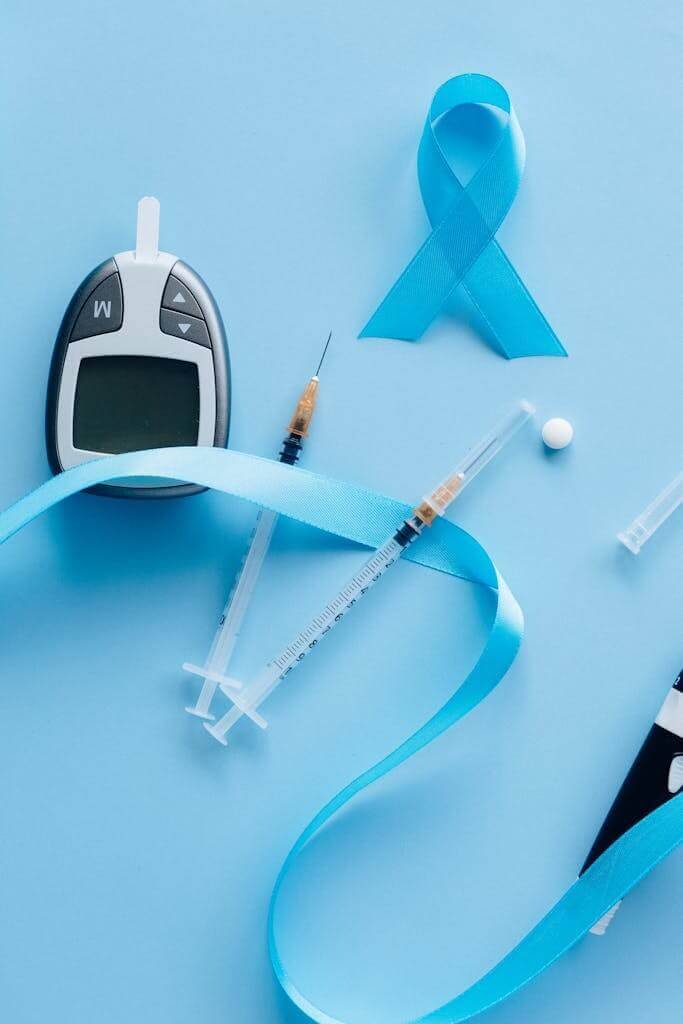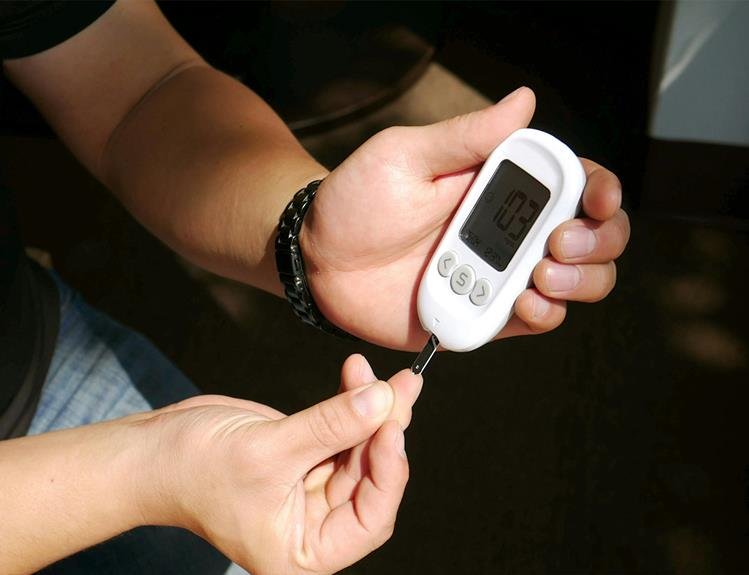Managing Diabetes to Prevent Cancer: What You Need to Know
Discover the delicate dance between diabetes and cancer.
Maintaining a proactive approach to managing your diabetes can potentially safeguard you against certain types of cancer.
By understanding the intricate connection and taking necessary steps, you can empower yourself to protect your health in more ways than one.
Stay tuned to uncover the essential strategies and insights that can make a significant difference in your well-being and longevity.
Understanding the Diabetes-Cancer Link
To grasp the connection between diabetes and cancer, consider how insulin levels influence cell growth and division. Insulin is a hormone produced by the pancreas that regulates blood sugar levels. In individuals with diabetes, either the body doesn't produce enough insulin (Type 1) or can't effectively use the insulin it produces (Type 2). High levels of insulin, often seen in diabetes, can stimulate cell proliferation and inhibit cell death, potentially promoting the growth of cancer cells.
When insulin levels are consistently elevated, as is common in uncontrolled diabetes, it can create an environment conducive to cancer development. Cancer cells thrive in high-insulin conditions because insulin acts as a growth factor. Furthermore, insulin resistance, a hallmark of Type 2 diabetes, is also associated with increased cancer risk.
Understanding this link emphasizes the importance of managing diabetes effectively to not only control blood sugar levels but also potentially reduce the risk of cancer development. By keeping insulin levels in check through proper diabetes management, you can positively impact cell growth regulation and potentially lower the risk of cancer.
Importance of Blood Sugar Control
Maintaining optimal blood sugar levels is crucial for managing diabetes effectively and reducing the risk of cancer development. Consistently high blood sugar levels can contribute to inflammation, oxidative stress, and insulin resistance, all of which are factors that may promote cancer growth. By keeping your blood sugar within the target range recommended by your healthcare provider, you can help lower your cancer risk.
When blood sugar levels are too high, it can lead to damage in various organs and tissues over time. This damage not only affects your diabetes management but also increases the likelihood of developing certain types of cancer. By actively monitoring your blood sugar levels through regular testing and making necessary adjustments to your diet, physical activity, and medication, you can better control your diabetes and potentially reduce the risk of cancer.
Implementing Healthy Lifestyle Changes
Keeping your blood sugar levels in check is just the first step towards preventing cancer; now, let's explore how implementing healthy lifestyle changes can further reduce your risk.
Start by incorporating regular physical activity into your routine. Exercise not only helps control blood sugar levels but also reduces inflammation and boosts your immune system, making your body more resilient against cancer. Additionally, focus on maintaining a balanced diet rich in fruits, vegetables, whole grains, and lean proteins. These food choices provide essential nutrients and antioxidants that can help protect your cells from damage that may lead to cancer.
Another crucial aspect of a healthy lifestyle is maintaining a healthy weight. Excess body fat, especially around the waistline, can increase insulin resistance and inflammation, both of which are linked to cancer development. By adopting healthier eating habits and staying active, you can manage your weight more effectively.
Moreover, limit your alcohol intake and avoid smoking, as these habits are known to increase the risk of various cancers. By making these lifestyle changes, you can significantly lower your risk of developing cancer while effectively managing your diabetes.
Medication Management for Diabetes
Considering your diabetes management, prioritizing effective medication usage is essential for maintaining stable blood sugar levels and overall health. It's crucial to follow your healthcare provider's instructions regarding medication dosage and timing. Consistency in taking your prescribed medications is key to managing diabetes effectively. Remember to communicate any concerns or side effects you may experience to your healthcare team promptly.
Metformin is a common medication prescribed for type 2 diabetes, helping to lower blood sugar levels by improving insulin sensitivity. Sulfonylureas stimulate the pancreas to release more insulin, aiding in glucose regulation. Additionally, medications like DPP-4 inhibitors and SGLT2 inhibitors can also be beneficial in managing blood sugar levels.
Always remember to monitor your blood sugar levels regularly, especially when starting a new medication or adjusting dosages. By staying proactive in managing your diabetes through medication adherence and close monitoring, you can significantly reduce the risk of complications and maintain better overall health.
Regular Cancer Screenings and Monitoring
To safeguard your health comprehensively, prioritize regular cancer screenings and monitoring in addition to effectively managing your diabetes through medication adherence and blood sugar level monitoring. Regular cancer screenings are crucial for early detection and treatment, especially for individuals with diabetes who may have a higher risk of certain cancers. Make sure to schedule screenings recommended for your age and gender, such as mammograms, colonoscopies, skin checks, and prostate exams.
Monitoring for cancer involves being vigilant about any unusual symptoms or changes in your body. Keep track of your body's signals, like unexplained weight loss, persistent fatigue, changes in bowel habits, or unusual lumps. If you notice any concerning symptoms, consult your healthcare provider promptly for further evaluation.
Conclusion
Overall, managing diabetes effectively is crucial in preventing the risk of cancer. By controlling blood sugar levels, adopting healthy lifestyle habits, and staying on top of medication, you can significantly reduce your chances of developing cancer. Regular screenings and monitoring are also key in catching any potential issues early on.
Remember, taking control of your diabetes not only benefits your overall health, but also plays a significant role in cancer prevention. Stay proactive and prioritize your health!






